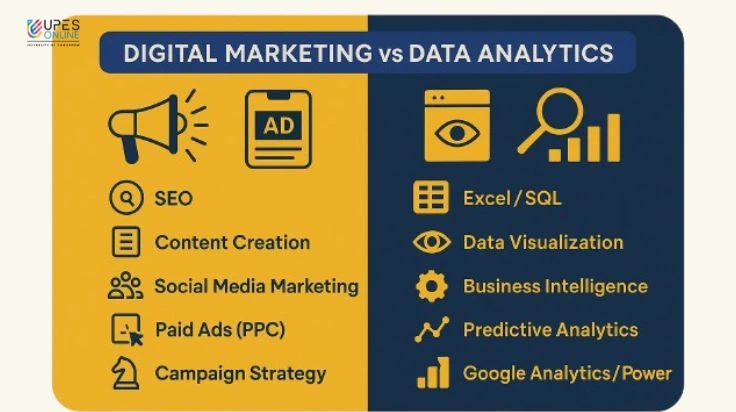Health, Safety, and Environment in the Oil and Gas Industry

The oil and gas industry is critical in the global economy, providing the energy that powers a modern society. However, the sector poses significant risks to human health and the environment.
Recent years have seen a growing recognition of the important of HSE(Health, Safety and Environment) in the oil and gas industry. HSE is concerned with protecting workers, communities, and the natural environment from the risks associated with oil and gas operations.
Health Hazards in the Oil and Gas Industry
Numerous health risks to employees, nearby communities, and the environment are associated with the oil and gas industry. The following are a few health risks associated with the oil and gas sector:
Occupational Health Hazards for Workers
Many occupational health risks are present for oil and gas industry workers, including:
- Chemical exposure, including to benzene and hydrogen sulfide
- High noise levels that cause hearing loss
- Musculoskeletal conditions brought on by using heavy machinery by hand
- Experiencing heat discomfort when working in warm and humid conditions
- Respiratory issues brought on by exposure to gases, fumes, and dust
Public Health Concerns in Communities near Oil and Gas Facilities
Releasing pollutants into the air and water can cause health dangers to communities near oil and gas plants. These dangers consist of the following:
- Respiratory issues caused by air pollution exposure
- Increased risk of developing cancer from contact with substances like benzene
- Pollution of water due to spills or leaks

Safety Hazards in the Oil and Gas Industry
Also the oil and gas sector significantly increases worker and community safety risks. The following are some of the safety risks in the oil and gas sector:
Types of Safety Hazards in Oil and Gas Operations
- Explosions and fires caused by the use of flammable materials
- Falls from heights, like those on platforms or drilling rigs
- Electrical risks associated with using high-voltage equipment
- Blowouts or wellhead failures are examples of equipment failures.
- Transportation mishaps involving pipelines and oil and gas vehicles
Regulatory Bodies and Standards for Protecting Health and Safety
Regulatory bodies and industry standards have been established to protect workers and nearby communities’ health and safety. These include:
- The Occupational Safety and Health Administration (OSHA) in the United States
- The American Petroleum Institute (API) standards
- The International Organization for Standardization (ISO) standards

Types of Safety in the Oil and Gas Industry
Safety is critical to health, safety and environment in oil and gas. There are two main types of security in the industry:
Process Safety
Process safety concerns the layout, use, and upkeep of buildings and machinery to avoid accidents that could endanger people or the environment.
This kind of safety focuses on preventing serious mishaps resulting from flaws in the setup or operation of tools or procedures, like fires, explosions, or hazardous discharges.
Occupational Safety
The safety of oil and gas sector employees is a problem of occupational safety. This kind of safety concerns preventing mishaps and injuries while performing regular tasks like carrying large objects, working at heights, or using machinery.
Safety Measures in the Oil and Gas Industry
The oil and gas sector employs several safety precautions, including:

Engineering and Design Controls
Engineering and design controls are safeguards incorporated into structures and machinery to prevent mishaps and injuries. These safeguards may consist of the following:
- Automatic shut-off valves that prevent leaks or spills
- Systems that detect and react to probable explosions or gas leaks using flame and gas
- Mechanisms for safety that halt activity in the case of an emergency
Administrative Controls
Administrative controls are precautions taken to lower the risk of accidents and injuries by implementing rules, procedures, and training. These safeguards may consist of the following:
- Worker education programs to make sure they’re informed of potential risks and how to handle situations
- Regular safety audits and inspections to spot potential threats and confirm adherence to safety standards
- Plans for responding to emergencies, like spills and fires, that detail procedure
Personal Protective Equipment (PPE)
Workers use personal protective equipment (PPE) to protect themselves from workplace dangers. PPE can consist of the following:
- Hard hats and safety glasses to prevent eye injury from flying items
- Respiratory protection devices to avoid breathing in dust, fumes, or gases
- Protection from cuts, abrasions, and chemical exposure with gloves and boots
In oil and gas, these safety precautions are essential for safeguarding the well-being of employees and adjacent populations.
Protecting the Environment in the Oil and Gas Industry
General safety in the oil and gas industry includes protecting the environment from potential harm caused by oil and gas operations. Some of the key measures to safeguard the environment include:
- Spill prevention and response plans to minimize the impact of oil spills on the environment.
- Waste management practices reduce the environmental damage caused by oil spills by implementing prevention and response strategies.
- Waste management procedures to guarantee the safe disposal of hazardous waste.
- The preservation of animals and natural ecosystems through land-use methods that are ethical and sustainable.
The industry can contribute to ensuring the long-term sustainability of its activities while reducing potential harm to the environment and neighboring communities by putting environmental protection measures in place.
Conclusion
In conclusion, the HSE challenges in the oil and gas industry must be addressed to ensure the safety of workers, communities, and the environment.
An integrated system makes a thorough and systematic approach to HSE risk management possible, which is crucial for business. To meet the problems this critical industry faces moving forward, oil and gas stakeholders must prioritize HSE and collaborate.
UPES Online Admission Enquiry
Recommended Courses




Latest Blogs

Digital Marketing vs Data Analytics: Which Career Should You Choose?
Battle of skills: Digital Marketing vs Data Analytics—compare 2025 salaries, skills & job roles. Expert tips to choose your future career path!
Read MoreJun 15, 2025 I 12 mins
Why Should I Choose UPES Online? 10 Reasons Why
Explore why UPES Online stands out in online education. Learn about flexible learning, UGC-approved degrees, expert faculty & credible online programs. Enroll now!
Read MoreAug 21, 2025 I 5 min
Can Distance Learning Fully Replace Traditional MBA Education? Challenges & Limitations
Find out if distance learning can truly replace a traditional MBA. Learn key challenges, limitations, expert opinion & insights.
Read MoreSep 2, 2025 I 4 mins
Online MBA Capstone Projects and the Importance They Hold
Know the importance of online MBA capstone projects. Learn how they build real-world skills, boost career opportunities, & add industry value.
Read MoreSep 7, 2025 I 5 mins
UPES Online MBA vs Other Top Universities: Why Students Prefer UPES
Compare UPES Online MBA with other top universities. Know why students prefer UPES online over others. Check fee, flexibility, faculty, ROI, & career scope.
Read MoreOct 1, 2025 I 7 mins








